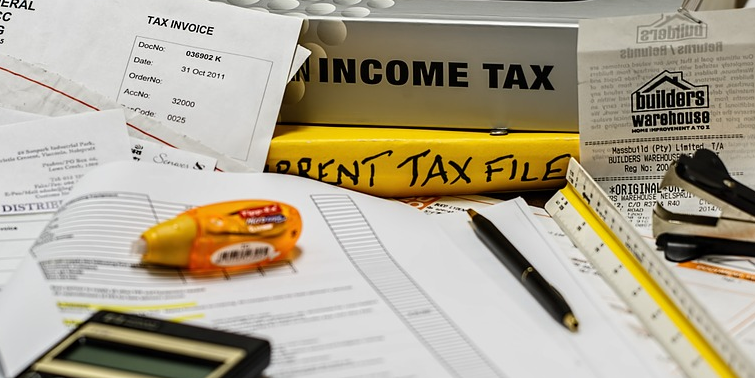10 Ways to De-Stress Your Business Tax Time
As a small business owner, tax time can be very stressful, especially if you wait until the last minute to try to organize a year’s worth of paperwork. In order to ease the stress and avoid potential trouble with the Colorado Department of Revenue or Internal Revenue Service (IRS), start thinking about tax time as all year round. There are steps you can take throughout the year to make a big difference in your total income and tax liability when it comes time to file. A small business attorney can give you tax advice on the right business structure and paying the right taxes on time as well as provide representation in the event of an audit or penalty. This post will cover 10 keys to getting organized and keeping accurate records to eliminate the anxiety of tax season.
Getting Your Taxes Organized
-
- Appoint time each month to reconcile your receipts, bank slips, statements, invoices, etc. By dedicating just a couple of hours every month to basic bookkeeping, you will avoid dealing with 12 months’ worth of accumulation all at once. You can make a list of steps to be prepared and add important deadlines, dates, and digital reminders to your calendar.
- Create a simple filing system for your paperwork. Keep everything in one place, and clearly label or name your folders. Both paper and electronic bookkeeping can be organized by month and type of record.
- Separate business and personal finances. Not only will separate bank and credit card accounts for your business make it easier to manage your books, it will enable you to produce legitimate business documents in the event of an audit.
- Review your business reports and records even if you have a bookkeeper or an accountant. It is your business and liability on the line, so it is vital to know what is going on. If you are looking to hire someone to do your taxes, the IRS suggests a list of questions to ask the prospective tax preparer.
- Prepare for next year as soon as you have filed for the current year. Make a list of steps and possible improvements for the following tax season while the success and/or struggle of the current one is still fresh on your mind.
Keeping Accurate Tax Records
- Understand your business structure and how it impacts your taxes. As your business grows and changes, it is important to reevaluate whether your current structure still works for you.
- Know how to claim your home office on your taxes. Whether you rent or own, you can claim a space that is designated for your business. It can be a partial space, rather than the whole room, and it must not be used for any other purpose. Once you have measured the space, you may be able to deduct a portion of expenses, like your mortgage interest, insurance, and utilities. The IRS has a home office deduction page with instructions.
- Record your mileage and car expenses if you use your car for business. There are two methods for calculating this deduction – one is based on your standard mileage rate, and the other is based on actual car expenses, like gas, repairs, and insurance. Whichever formula you choose, you will need documentation, including dates, mileage, tolls, parking fees, and the reason for your trip.
- Remember to save receipts from meals, travel, entertainment, and gifts. While you can deduct 50% of business-related meals, the cost of travel is 100% deductible. Most client entertainment expenses fall under the 50% deduction limit, while a direct gift to a client or employee is 100% deductible (up to $25 per person per year).
- Deduct office supplies even if you do not take the home office deduction. Furniture and other equipment, software/subscriptions, and telephone charges are also tax-deductible.
There are endless tips on how to streamline your business tax process as well as how to avoid a business tax audit. From starting a retirement plan, donating, and deferring income to not hiring too many independent contractors and limiting your business loss claims, the possibilities are seemingly endless. A small business attorney will help you sift through the checklists and keep prepared for each new tax season.
If you need help with your business taxes, or just need to find ways to de-stress business tax time tasks for your small business, contact me, Elizabeth Lewis, at the Law Office of E.C. Lewis, P.C., home of your Denver Small Business Lawyer. Phone: 720-258-6647. Email: elizabeth.lewis@eclewis.com
Contact Us Today
Law Office of E.C. Lewis, P.C.
Your Denver Business Attorney
LICENSED IN COLORADO AND NORTH CAROLINA
Mailing Address:
501 S. Cherry Street, Suite 1100
Denver, CO 80246
720-258-6647
Elizabeth.Lewis@eclewis.com
Online at:
Real Estate Services for Business Owners
Elizabeth Lewis provides the following real estate law services to small and medium sized business owners in Denver and throughout Colorado:
- Commercial real estate purchases
- Legal review of commercial real estate leases
- Protecting your assets


